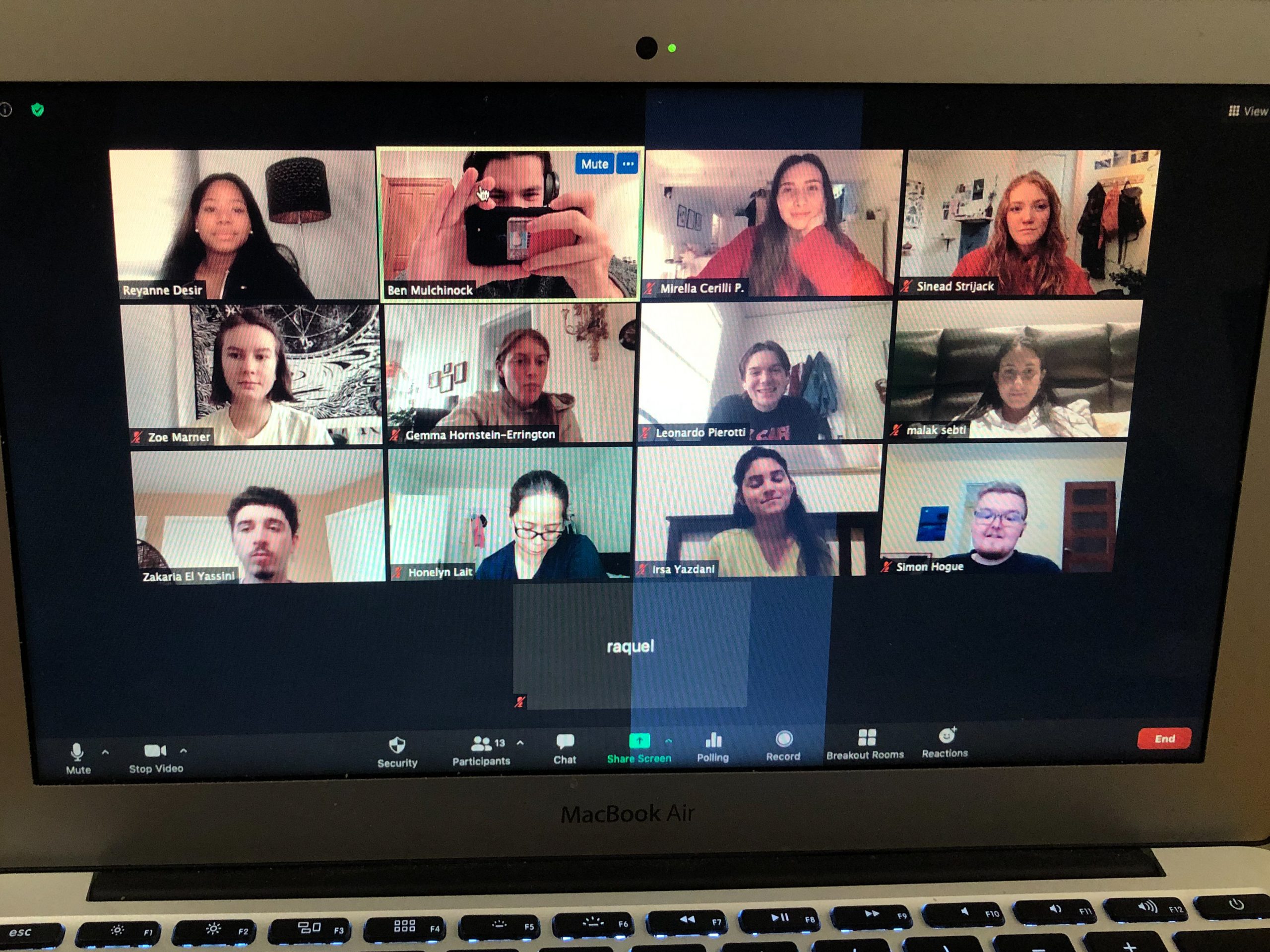Since achieving her Master’s degree in art history from Concordia University, Rosey Edeh has gone on to become a veteran broadcast journalist. She has worked for such media networks as the CBC, Global Television, CFCF-TV/CTV, CNN and NBC. She is currently a senior entertainment reporter for Entertainment Tonight Canada. Edeh is also a three-time Olympian. She competed in the 1988, 1992 and 1996 Olympic Games and cites her greatest sporting accomplishment as being the Canadian record holder for the 400m hurdles.
How did a career in sports help shape you into the person you are today?
In every facet of my life it affects and helps me. In athletics, I learned how to be focused, determined and to work assiduously, three qualities a journalist must have. Another thing I learned from athletics that is still with me today is, as you may know, at times, people try to play head games with you with the purpose of psyching you out.
It’s up to you to not be taken in by that. It’s up to you to hold your own ground, run your own race and perform to the best of your abilities, no matter what circumstances. You can apply that to real life, and in the business that I’m in now – entertainment reporting – it can get fairly competitive, maybe a little pushy on the red carpet, but you’ve got to keep your composure and remember what you’re there to do, which is to get the best interview you can from different celebrities.
Tell me about how you got into journalism. You started off as a sports reporter in Montreal?
I did. Ron Reusch from CFCF-12 followed my career pretty much from the outset. After the 1996 Olympics, he sought me out and he said, “Listen, I want to teach you the ways of reporting because I think that you would be really good at it.” And I really wanted to learn, being an athlete, I liked to perform in front of people, so this was just an extension of that.
Was it hard getting into the field without a formal education in journalism?
I gravitated toward it immediately mainly because I had a mentor who was always behind me. With that kind of support, you just feel like the world is your oyster. I had Ron behind me saying, “You’re going to pick this up really easily. This is how you do it.”
He broke everything down to me in a simple way. He showed me how to write a story, how it has a beginning, a middle and an end. Then I went out and followed some of the reporters and watched how they worked and I was fascinated. I just took to it immediately.
Tell me about your first job as a journalist.
I got that job thanks to Ron. At the time, Ron couldn’t offer me a paying job, he just wanted me to get my feet wet and get a taste of reporting. He was able to recommend me to a company that was shooting a snowboarding competition up north in Quebec. It was great. It was a big air competition. I had to write the script and I had to go out and interview the snowboarders. I was freezing because I was under-dressed, trying to look cute. But I tell you what, I had such a ball. That experience just sealed it for me. That’s when I told myself I definitely wanted to work in television broadcasting.
You have worked as a journalist across North America. Did you notice any major differences between the United States and Canada?
I think in one sense it’s quite relentless and unforgiving in the United States. Family and social life really does have to take a backseat to 24-hour news. They pay you the big bucks, but they expect you to come to work and stay at work for however long it takes to get that work done. Whereas in Canada, there’s a bit more of a social conscience because they realize you may have a family and there’s a little bit more room for you to breathe, I feel.
What qualities do you think media outlets are looking for in aspiring journalists?
I think they’re looking for something extra. Someone who has something different about their background that shows they have something unique to offer to that particular company. Perhaps that person has a strong interest in music or in art. Just something that adds a little bit of uniqueness to their character. That way, the company knows they might get a little something extra from them.
What advice can you offer to anyone interested in pursuing a career in journalism?
I think you need to get your foot in the door, no matter how you do it, whether it means serving coffee, or just coming in and running papers. You’ve got to get into the newsroom any way you can. Once you’re there, you don’t quit. Ask questions and keep your eyes open and try to be as helpful as you possibly can. Once you’re in, just try to find someone who you can identify with, and see if they can help you and just ask them questions and offer your services even if it’s on the weekend and you’re not getting paid. Just go out there and do it.
Photo credit: Barbara Cole



